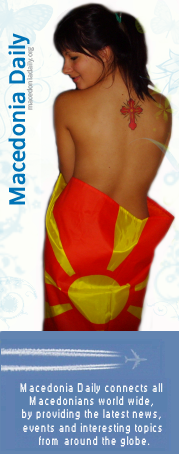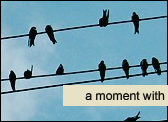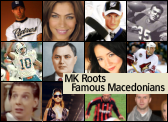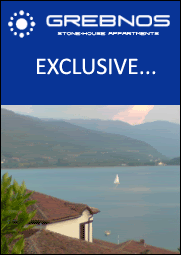ASKING WETHER THEY CAN VOTE FOR A MUSLIM

National.
Several Orthodox Christian believers from Macedonia’s central town of Negotino, worried they would be committing a sin if they vote for Muslim candidate Imer Selmani in this Sunday's presidential elections, have asked, and got the blessing to do so from their local priest.
This unusual request came as the presidential race intensifies ahead of the March 22 poll.
“Since I consider myself to be a big believer, and my fellow citizens know me as one, I consulted my priest in order not to make a mistake, since Imer Selmani is a Muslim,” said one Negotino resident to the local ''Dnevnik'' newspaper.
He said that he is honestly considering voting for Selmani because, “unlike the rest of the candidates, he [Selmani] has insulted no one during the campaign”.
The priest from Macedonia’s Orthodox Church also cited by the newspaper gave his blessing to the believers to vote for whom they like.
“The Bible says that every authority is God given. It makes no difference whether you vote for a Muslim or a Christian. It is God’s will who will win”, the priest replied to the question.
According to the newspaper more and more people from this mainly Orthodox town populated with ethnic Macedonians are considering voting for the ethnic Albanian Selmani, comparing him to Barack Obama who became the first US president with an African American background. Macedonians and Albanians have typically voted for representatives from their own ethnic groups in the past.
Various opinion polls show that Selmani has a serious chance of becoming the first ethnic Albanian presidential candidate to ever enter the second round of Macedonia's presidential elections, slated for April 5.
In 2001 the country suffered an ethnic Albanian armed insurgency. The hostilities ended with the signing of the Ohrid peace accord that granted greater rights to Albanians, which make up about one quarter of the population.
Unlike the other six candidates whose rhetoric during the campaign targets mainly their own ethnicity, Selmani, who readily admits that he was inspired by Obama’s victory in the US, stages rallies in areas populated by the Macedonian majority as well as in the parts of the country where the Albanian community lives.
[Binsight]


























By Robert Marquand
2,300 years later, 'Alexander-mania' grips Macedonia
Much to the anger of Greece, the ancient conqueror is making a big comeback in Macedonia – he's arriving just in time for Sunday's election.
SKOPJE, Macedonia - As part of a stunning new homegrown ideology of history and identity based on Alexander the Great, this capital city's main square may soon boast a huge new statue of the ancient conqueror.
Two years ago, the national airport was renamed after Alexander, infuriating Greece.
In January, despite a recent Greek nixing of Macedonia's NATO bid over the airport name, the ruling nationalists here changed the name of its main roadway to Alexander of Macedon Highway.
In Macedonia, it is becoming all Alexander the Great, all the time. Ahead of Sunday's presidential elections, the ruling party's Alexander ideology is seen as fantastic, even by Balkan standards.
In an intense media campaign, locals are told that ethnic Macedonians are the proud direct descendants of Alexander, and thus a people responsible for spawning the white race of planet Earth, from the Caucasus "to the seas off Japan," according to a public service spot on national TV.
The "Alexander-mania," as critics call it, is partly a vote-getting strategy by the ruling party, known by its initials VMRO. Doubts exist as to whether party leaders actually believe the claims, but they are being sold as truth. The failure last spring to get a clear NATO invitation prompted fury in Skopje, and the Alexander campaign is seen as an effort to up the ante.
By pushing its thumb further into the already sore eye of Greece, both NATO and EU membership for the small, landlocked state remains in limbo. Macedonia is also distracted from reducing tensions with its sizable Albanian minority community following a brief ethnic war in 2001, diplomats say.
The dispute with Greece, largely unchanged since 1991, centers on a fight over the use of "Macedonia" as the country's name. Greece wants a name that doesn't include or at least deemphasizes "Macedonia," which Greeks say is their own. The former Yugoslav Republic of Macedonia says its name is its own sovereign business. Negotiations have been endless.
For years, Greek demands were seen as cock-eyed and petty in diplomatic circles. Yet Macedonia has been losing sympathy as it roars out heritage claims on Alexander.
"If the name is the condition of our survival, which it seems to be, we are very far from reaching our strategic aims: NATO and the EU," says former Macedonian Foreign Minister Denko Maleski. "The new way of thinking about history is keeping tensions alive. We are a new nation, liberal and international, suddenly veering into the 19th century."
A poll last month showed that 97 percent of ethnic Macedonians favored staying out of the EU if it meant compromising on the name.
"The name dispute is more than a bilateral issue between Skopje and Athens. It risks derailing the main strategy of both NATO and the EU for stabilizing Macedonia," says a recent report from the International Crisis Group.
Some diplomats frame Sunday's elections as a vote for a president who may push Prime Minister Nikola Gruevski for a name resolution versus a nationalist who would not. Right now, it appears that VMRO's George Ivanov, an architect of the Alexander discourse, is set to win big. The opposition is in disarray, and Macedonia could end up with a one-party state.
"The entire nationalism hysteria, which only few question as most media get huge sums of money through government advertising, serves not only as a distraction from serious problems ... but has created an atmosphere that makes compromise difficult. It reminds me a bit of the madness of Serbia in the '90s, though not on the same scale, when Serbs spoke of themselves as 'the heavenly people,' " says Ana Petruseva, managing editor of Balkan Insight, in Skopje.
Indee, Macedonia's bold claim to be the taproot of Western civilization is daily media fare.
Last summer, the government flew in members of Pakistan's Hunza tribe, considered lost descendants of Alexander, to tour the country. Startled and pleased Hunza were greeted at Alexander airport with flowers and treated like long lost cousins as they disported across the nation, cameras in tow.
Even "God" has gotten involved. A nine-minute TV ad starts with a petition from Macedonia to the heavens: "Our neighbors distributed thousands of books across the world, containing false history and portraying a wrong picture about Macedonia. ... Only you know our pain." The Almighty then responds: "From you, Macedonians, descendants of Macedon, I conceived the white race. All that stretches to the seas off Japan is conceived from your genes."
Sinisa-Jakov Marusic, a columnist for Balkan Insight, cheekily observed, "So there you have it! What better proof than God himself?"
Beyond theatrics, the new program deeply troubles many scholars and intellectuals here – who are being sidelined – for its promulgation of myth as truth. The new taxpayer-funded Alexander ideology has no serious texts.
Unlike Serbia's Kosovo story, based on centuries of poetry and legend, the Macedonian ideology is being both invented and presented at the same time. There is no outside scholarly consensus, no textual tradition; the result is a kind of history-free history. The top-down, debate-free imposition of the new history is itself seen as illiberal and authoritarian.
The new program deeply troubles many scholars here. "What is the content of 'Alexanderization?'" asks Irena Stefoska, a Byzantine scholar at the Institute of National History here. "Who knows? It is a new reading of history completely different from the previous, not done from an academic point of view, but from a purely political view."
Alexander is considered one of the greatest military leaders of all time. Born in the Greek city of Pella in 356 BC, his conquests extended to most of his known world by the time of his death at age 32. He opened up Greek civilization from the Mediterranean to India, and is regarded as the first to link Europe, Asia, and Africa.
"Alexander was the captain general of all the Hellenes. He spoke Greek. He went to war on behalf of the Hellenes. No one in the ancient, medieval, or modern world has disputed this," says Michael Wood, a historian and British filmmaker who has produced a work on Alexander and has another in the making.
"The Macedonian state claim has no basis in history; it is a state-sponsored myth. I tell my Macedonian and Greek friends to ignore it," Mr. Wood adds.
State archaeologists in Skopje and Athens, however, are busy unearthing ancient Hellenic artifacts, which are then presented as evidence of Alexander heritage. Advocates of this new history leap from the present day to ancient times, ignoring Ottoman, Slavonian, and Byzantine periods when the Balkan peoples migrated and mingled.
"The problem is that no one today can be the direct descendants of ancient civilizations," says Ms. Stefoska. "Macedonians are Slavs. Our Slavonic heritage is accepted by historians."
Several years ago, VMRO officials claimed that Macedonia's majority population had an ethnic Bulgarian or Slavic origin.
A chief fear here is a scenario of partition – of north Kosovo Serbs in the Mitrovica area joining Serbia proper, which could push Macedonian and Kosovar Albanians into a union, breaking up Macedonia.
So far, ethnic Albanians here have been patient over the Macedonia-Greece dispute. Albanian parties are in the ruling coalition. Yet the patience may not be unlimited, senior diplomats say.
Artan Grubi, head of an Albanian civil society organization, says, "Most Albanians will tell you they have nothing against building a Macedonian identity. But they don't want to suffer because of it. At the moment, the policies of this government are moving us further from Europe."
http://www.csmonitor.com/2009/0321/p01s01-wogn.html
Posted by Anonymous |
23:28
Anonymous |
23:28
He dosnt know what he is talking about how can Alexander the great speak greek when the word Greece did not exist then.
Alexander the greats Empire was called the Macedonian Empire not the Greek Empire or Athenian or Spartan not even Hellenic Empire Alexander is know as Alexander the Great King Of Macedon. not King of Greekdon.
Posted by Anonymous |
02:34
Anonymous |
02:34
Post a Comment